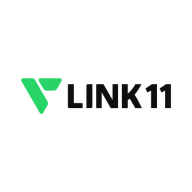

Prisma Cloud by Palo Alto Networks and Reblaze compete in the cloud security category, each with distinct strengths. Prisma Cloud appears to have the upper hand due to its comprehensive compliance monitoring and strong integrations, making it suitable for broader cloud security needs, while Reblaze excels in threat mitigation, offering tailored DDoS protection and real-time attack responses.
Features: Prisma Cloud offers dynamic workload identity creation, automated forensics, and robust compliance monitoring integrated seamlessly across cloud environments. Its ability to provide a comprehensive security suite makes it a top choice for organizations aiming for full cloud protection. Reblaze offers effective DDoS protection, advanced bot filtering, and real-time monitoring capabilities, providing efficient API security across both cloud and on-premise environments, making it particularly desirable for businesses that prioritize threat defense.
Room for Improvement: Prisma Cloud could enhance its documentation with real-world examples, improve compliance dashboards, and update integration between components more seamlessly. Users desire more granular permissions and faster updates. Reblaze could improve its automation capabilities, offer more detailed WAF rules, and enhance its bot management database, simplifying the rule creation process and enhancing automated reporting.
Ease of Deployment and Customer Service: Prisma Cloud supports hybrid, public, and private cloud deployments with comprehensive service and support teams. However, there is variability in support quality. Reblaze is noted for its straightforward deployment and consistent technical support, providing ease in deployment and effective support for both private and public cloud environments.
Pricing and ROI: Prisma Cloud is considered a premium investment with licensing complexities but is valued for reducing risks and improving compliance efficiency. Reblaze offers competitive pricing models with predictable costs favoring long-term contracts, making it an appealing option for cost-effective ongoing operations without additional complexities.
It eliminates the need for additional hardware, making it a financially and technically sound investment.
From a security standpoint, we have significantly enhanced our client's security posture by implementing Prisma Cloud.
The platform is not famous for being cheap. It is quite expensive, but we know that we have the protection, so there is enough value for what we pay for.
Whenever I have issues with the solution, I will get an immediate response from the product team and they will try to close the issue as soon as possible.
When you send them a message, you get a response in a minute or two.
They can respond with technical documentation or pass on the case to the next level because it requires the development of a new feature or changing a feature due to a bug.
It's very scalable and very easy to use.
I would rate the scalability of Prisma Cloud as an eight out of ten.
I am highly impressed with the product's scalability.
I cannot recall any downtime with the solution.
I would rate it a ten out of ten for stability.
The tool responds well in small-scale infrastructures, functioning perfectly without any issues.
It is a SaaS solution, but some of my clients have a local regulatory requirement, and they want to install it locally on their premises.
From a developer's perspective, especially for organizations like banks developing their applications, ensuring API security before deploying them to the cloud is crucial.
Prisma Cloud is an excellent tool.
Prisma Cloud is remarkably expensive.
The cost was not on the higher side.
That's why a lot of our clients are shifting from cloud-native to Prisma Cloud: because of its effectiveness and because it is budget-friendly as well.
We could spread the Prisma Cloud platform to 16 countries without encountering any kind of problem.
Prisma Cloud provides risk clarity at runtime and across the entire pipeline, like, showing issues as they're discovered during the build phases.
Identifying misconfigurations and vulnerabilities at the first stage itself will help the organization save time and money - which is highly appreciated.

Prisma Cloud by Palo Alto Networks delivers comprehensive security for cloud environments, focusing on workload protection, identity creation, and seamless AWS integration. Its cloud visibility and control, combined with thorough vulnerability scanning, help maintain robust security across multi-cloud platforms.
Prisma Cloud provides essential capabilities for cloud security posture management, container security, and compliance monitoring. Enterprises utilize it to secure cloud configurations, detect vulnerabilities, and ensure regulatory compliance, spanning AWS, Azure, and Google Cloud. Its runtime management, identity-based micro-segmentation, and threat detection enhance cybersecurity. Despite needing improvements in documentation, integration complexities, UI, and the need for role-based access control refinement, it remains pivotal for securing assets across cloud infrastructures, particularly with its capabilities for vulnerability scanning and CI/CD pipeline integration.
What are the key features?
What benefits or ROI should users expect?
In industries like finance, healthcare, and retail, Prisma Cloud is implemented to strengthen cybersecurity measures, facilitate regulatory compliance, and enhance governance. Organizations leverage its features to secure sensitive data, monitor configurations, and integrate security processes within CI/CD workflows, ensuring robust protection across complex cloud infrastructures.
Reblaze provides real-time monitoring, reporting, and botnet protections, enhancing security management with agile customization. Its intuitive dashboard supports efficient decision-making, while flexible rules and geo-blocking ensure security across geographies.
Reblaze is primarily deployed for web application firewall (WAF), DDoS prevention, and bot management, effectively defending against Layer 7 DDoS, phishing, SQL injections, cross-site scripting, and unwanted IP traffic. Supporting both public and private cloud deployments, including Amazon-hosted applications, Reblaze filters malicious activities to safeguard internet businesses. Users appreciate its comprehensive security approach, particularly for mobile app protection through its API and advanced filtering against script injections. Room for improvement includes change management, automation, reporting alerts, session management, and more granular WAF features. Adjustments in pricing and enhancements for bot management and bad IP address databases are sought after.
What are Reblaze's Most Important Features?In finance, Reblaze addresses the stringent demands of data protection. E-commerce platforms benefit from its robust perimeter defenses against typical threats. Healthcare industries utilize its capabilities to secure sensitive patient data, leveraging both real-time monitoring and responsive alert systems to maintain compliance and integrity.
We monitor all Web Application Firewall (WAF) reviews to prevent fraudulent reviews and keep review quality high. We do not post reviews by company employees or direct competitors. We validate each review for authenticity via cross-reference with LinkedIn, and personal follow-up with the reviewer when necessary.